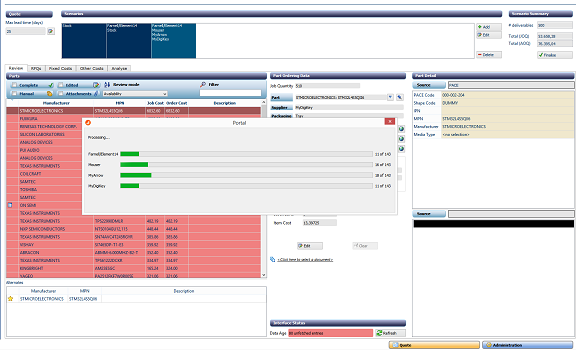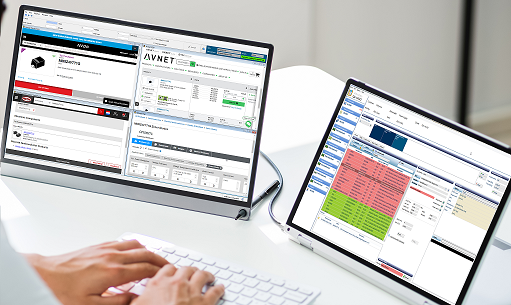The automatic multi-vendor API-search

Starting from settings about exact part quantities for the job or factory packaging and the attrition (spill) compensation, the minimum and multiple order quantities are also taken into account, with the order cost, job cost and residual material cost being calculated at the same time. Currently, 9 API interfaces are operational. And soon more to come.
RFQ based search
Collecting and analysing price and availability data from large numbers of part codes through multiple APIs is a very time-consuming activity, poorly performed by humans. The DSS performs these analyses in the background without any loss of time. Based on the automatically collected part code information via the APIs or RFQs, the QuoteArchitect's decision support system (DSS) makes in the background per part code a "best choice" proposal. The operator can then decide to follow the proposal or to manually overrule it. Manual selections, and selections via PILOT, are considered overruling in any case.
PILOT, a smart, multi-vendor website search module
Selecting the best supplier for a part code is not the only function in Pilot. Other useful functions such as whether or not to take into account an existing warehouse stock or a partial availability of another supplier, the indication of a longer delivery time and a price per standard packaging make Pilot an excellent interactive tool.
Manual entry functionality
The manual insertion function gives the operator maximum influence on the final result in the MCA module. In addition to the aforementioned input and overruling function, it offers the possibility of compiling the desired number per part code for a job from multiple sources. For example, a combination of a number of components supplied by the customer (at zero cost), supplemented with components from one or more suppliers. Or insufficient available warehouse stock, supplemented with parts from different distributers. Informal price data and traded discounts can be processed directly. Notes can be added to document informal agreements.

